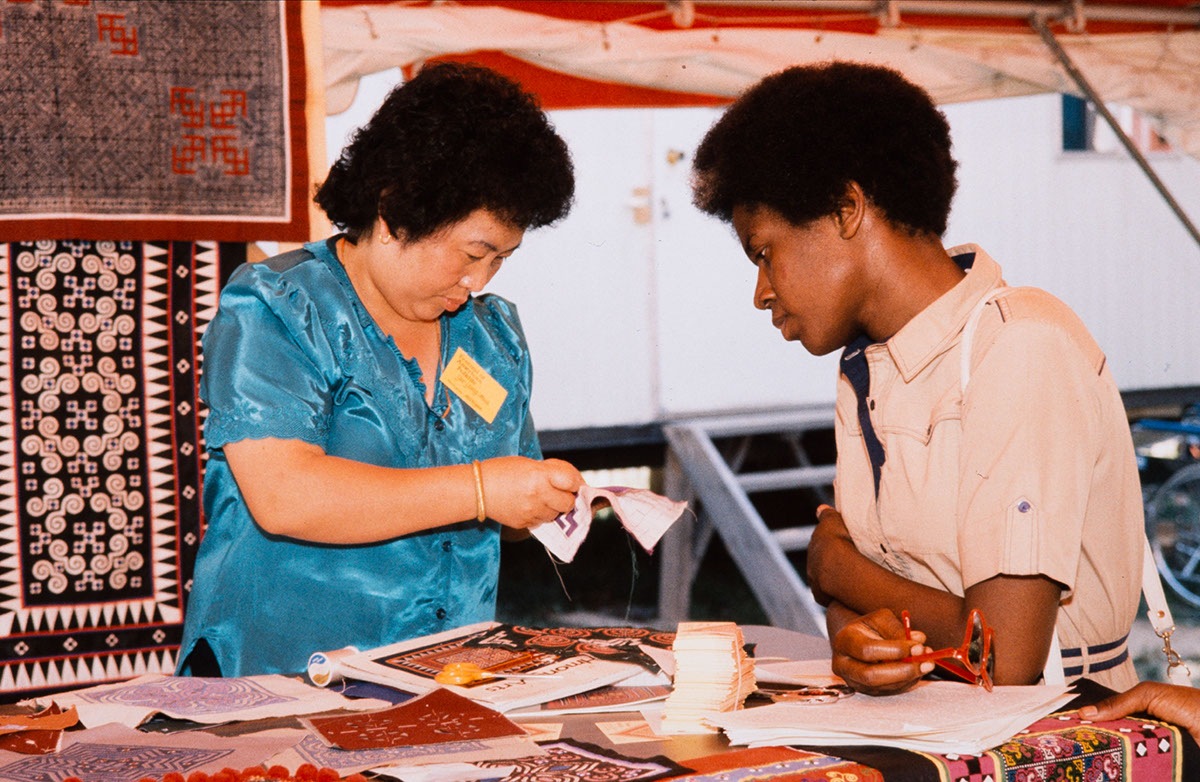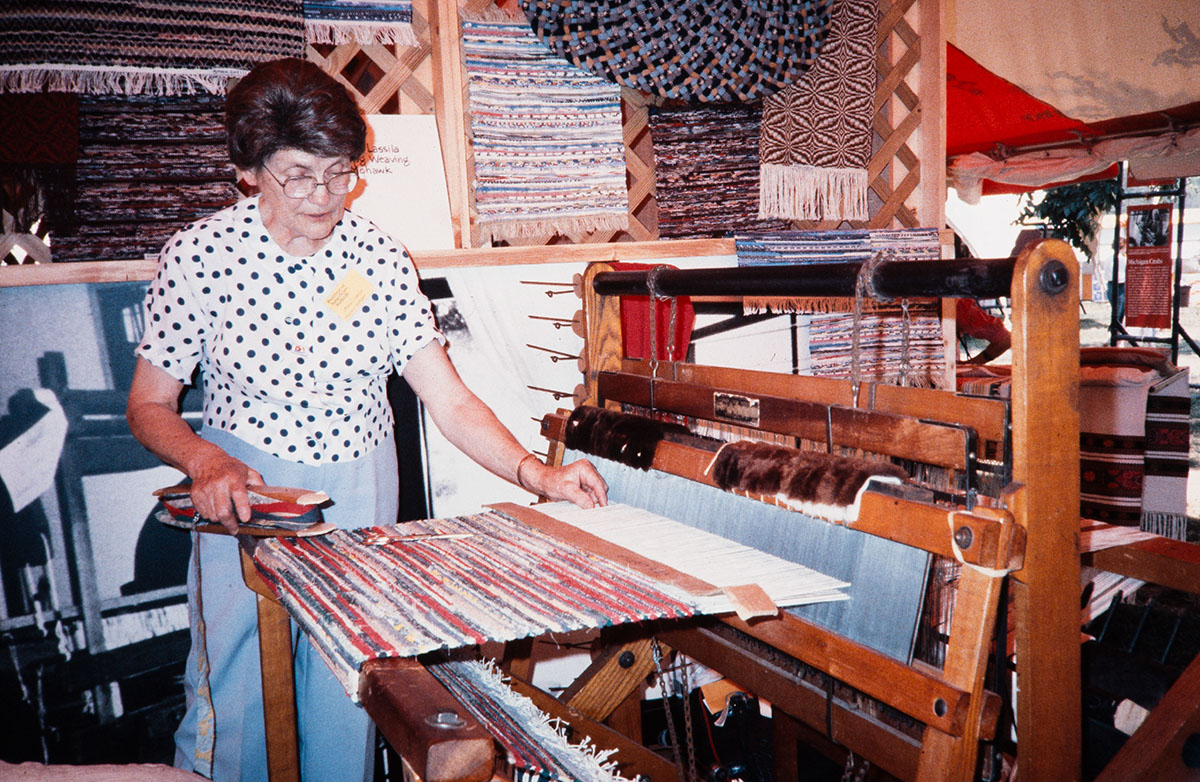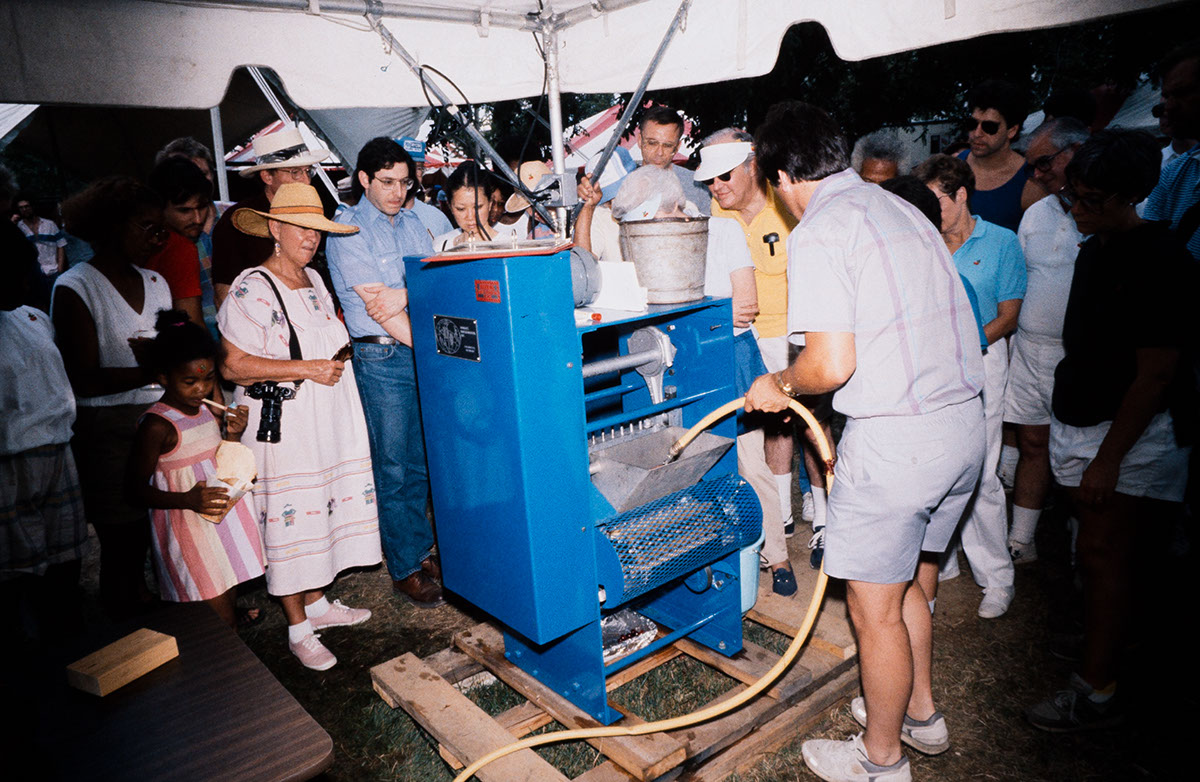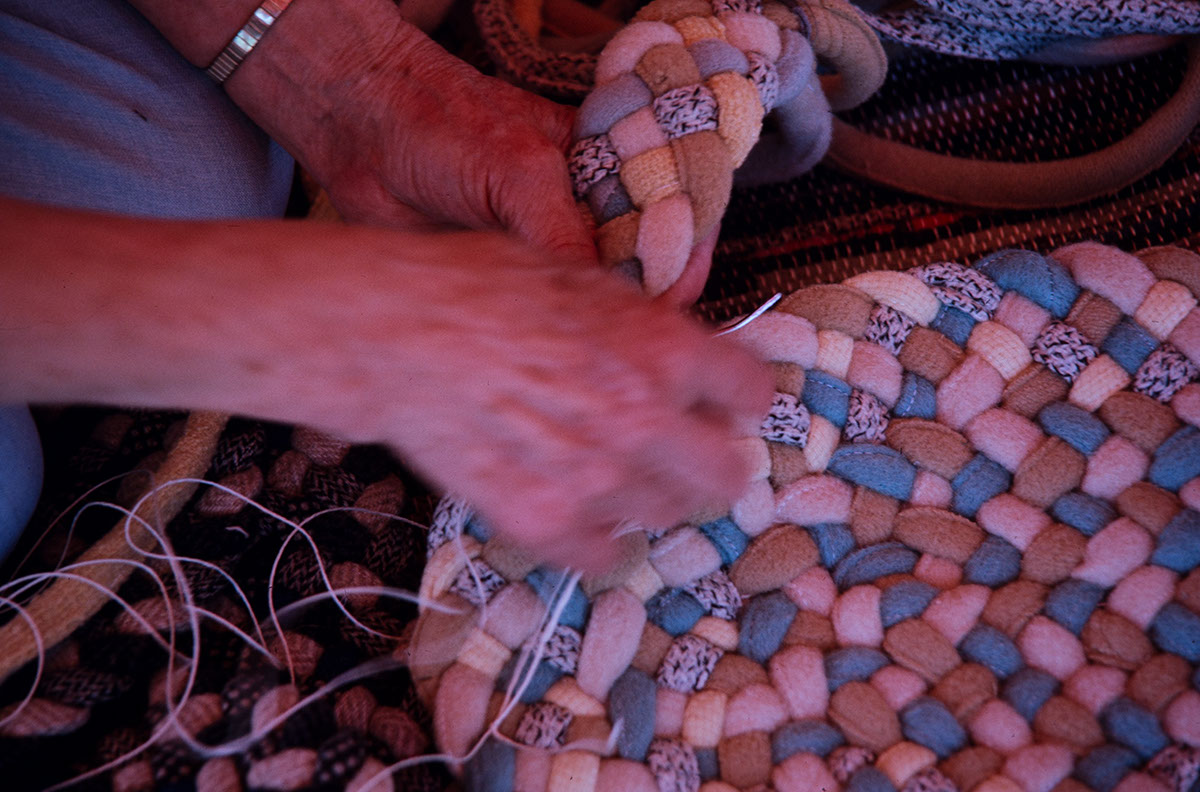From the State of Michigan, ninety of its residents came to the 1987 Festival to speak about and demonstrate some of the rich traditional culture from that region. To help create a festival setting in which performers of valued traditions could speak about their experiences and heritages with performed music, active demonstrations, and spoken words seemed a most appropriate way to celebrate the sesquicentennial of that geographically endowed, historically important and culturally rich state.
Throughout Michigan's history those who migrated to the state have been drawn by - or have themselves introduced - fishing, trapping, mining, lumbering, farming, and automobile manufacturing. The lore of such occupations, combined with the rich ethnic heritage of those who built Michigan, form the essence of the state's traditional culture. Michigan today is home to more than one hundred different nationalities, including the country's largest population of Finns, Belgians, Maltese, and Chaldeans; the second largest numbers of Dutch, Lebanese, and French Canadians; and perhaps the largest concentration of Muslim Arabs (in southeast Dearborn) outside the Middle East. Detroit alone is one of the most ethnically diverse cities in the country. The heritage of these diverse groups - along with those of Native, Euro Americans, and Afro Americans who migrated to Michigan throughout the state's history - give Michigan folklife its distinctive characteristics.
Complementing a full performance schedule that highlighted Michigan's diverse musical heritage, ongoing demonstrations included lure making, fly tying, boat building, Native American quillwork, black ash basketry, finger weaving and beadwork, Dutch wooden shoe making, furniture carving, Afro American quilt making, Palestinian needlework, Ukrainian textiles and egg decorating, ski and sleigh making, decoy carving, rag rug weaving, cherry harvesting & pruning, evergreen nursery techniques, net making, and ice fishing.
Betty Belanus, Laurie Sommers, and Thomas Vennum, Jr. served as Curators for the Michigan program, with Laurie Sommers also serving as Program Coordinator and Barbara Lau, as Assistant Program Coordinator.
The Michigan Program was made possible by the Michigan Sesquicentennial Commission and the Michigan Department of State.







